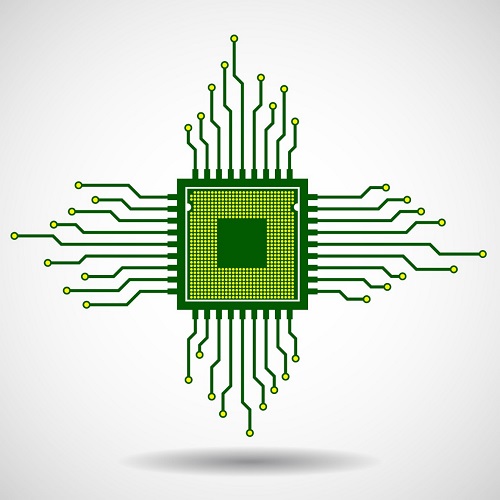computer course free online | free basic computer courses | all computer courses list
Good tidings!
I go by Amit and I'm the proprietor of PC course kid . I'm a Full free PC course Welcome to Hi companions science innovation I go by Amit Kumar a little site engineer who needs to add to the advancement of schooling on the planet. Value us as an afterthought. Your analysis and ideas are extremely significant for understudies and overall population to foster this free worldwide business application intensely for Online PC class for understudies .
computer course free online -
Chip is the cerebrum of PC, which accomplishes basically everything. A PC processor consolidates every one of the elements of computer chip (Focal Handling Unit) on a solitary IC (Incorporated Circuit) or at the most a couple of ICs. Chip were first presented in mid 1970s. 4004 was the primary broadly useful microchip utilized by Intel in building PCs. Appearance of minimal expense universally useful chip has been instrumental being developed of current culture the manner in which it has.

We will concentrate on the qualities and parts of a microchip exhaustively.computer course online free certificate
Microchips Qualities-computer course free online
Microchips are multipurpose gadgets that can be intended for nonexclusive or particular capabilities. The microchips of PCs and cell phones are universally useful though ones intended for graphical handling or machine vision are specific ones. There are a few qualities that are normal to all chip.
These are the main principal qualities of a microchip −
●Clock speed
●Guidance set
●Word size
Clock Speed-computer course online free certificate
Each chip has an inside clock that manages the speed at which it executes directions and furthermore synchronizes it with different parts. The speed at which the microchip executes directions is called clock speed. Clock speeds are estimated in MHz or GHz where 1 MHz implies 1 million cycles each second though 1 GHz equivalents to 1 billion cycles each second. Here cycle alludes to single electric sign cycle.
Presently microchips have clock speed in the scope of 3 GHz, which is most extreme that ongoing innovation can accomplish. Speeds more than this create sufficient intensity to harm the actual chip. To beat this, makers are utilizing various processors working in lined up on a chip.
Word Size_computer science course free online
Number of pieces that can be handled by a processor in a solitary guidance is called its statement size. Word size decides how much Slam that can be gotten to at one proceed to add up to number of pins on the microchip. All out number of info and result pins thus decides the engineering of the microchip.
First business microchip Intel 4004 was a 4-digit processor. It had 4 info pins and 4 result pins. Number of result pins is consistently equivalent to the quantity of info pins. As of now most microchips utilize 32-bit or 64-digit engineering.
Guidance Set-computer science course free online
An order given to a computerized machine to play out a procedure on a piece of information is called a guidance. Fundamental arrangement of machine level guidelines that a chip is intended to execute is called its guidance set. These guidelines in all actuality do these kinds of activities −
●Information move
●Math tasks
●Consistent tasks
●Control stream
●Input/result and machine control
Chip Parts-computer science course free online
Contrasted with the primary microchips, the present processors are tiny yet they have these fundamental parts right from the main model −
●Central processor
●Transport
computer course online free certificate
●Memory
●Computer chip
Computer chip is manufactured as an exceptionally enormous scope coordinated circuit (VLSI) and has these parts −
●Guidance register − It holds the guidance to be executed.
●computer course online free certificate
●Decoder − It interprets (converts to machine level language) the guidance and ships off the ALU (Number juggling Rationale Unit).
●ALU − It has fundamental circuits to perform number juggling, coherent, memory, register and program sequencing tasks.
●Register − It holds middle of the road results acquired during program handling. Registers are utilized for holding such outcomes instead of Slam on the grounds that getting to registers is very nearly multiple times quicker than getting to Smash.
Transport
Association lines used to interface the inward pieces of the microchip chip is called transport. There are three sorts of transports in a chip −
●Information Transport − Lines that convey information to and from memory are called information transport. It is a bidirectional transport with width equivalent to word length of the chip.
●Address Transport − It is a unidirectional liable for conveying address of a memory area or I/O port from computer processor to memory or I/O port.
●Control Transport − Lines that convey control signals like clock signals, intrude on sign or prepared signal are called control transport. They are bidirectional. Signal that means that a gadget is prepared for handling is called prepared signal. Signal that demonstrates to a gadget to interfere with its interaction is called a hinder signal.
Memory
Chip has two sorts of memory
computer science course free online
●Smash − Arbitrary Access Memory is unpredictable memory that gets deleted when power is turned off. All information and directions are put away in Slam.
●ROM − Read Just Memory is non-unpredictable memory whose information stays in salvageable shape even after power is turned off. Chip can peruse from it any time it needs yet can't keep in touch with it. It is prearranged with most fundamental information like booting succession by the maker.






